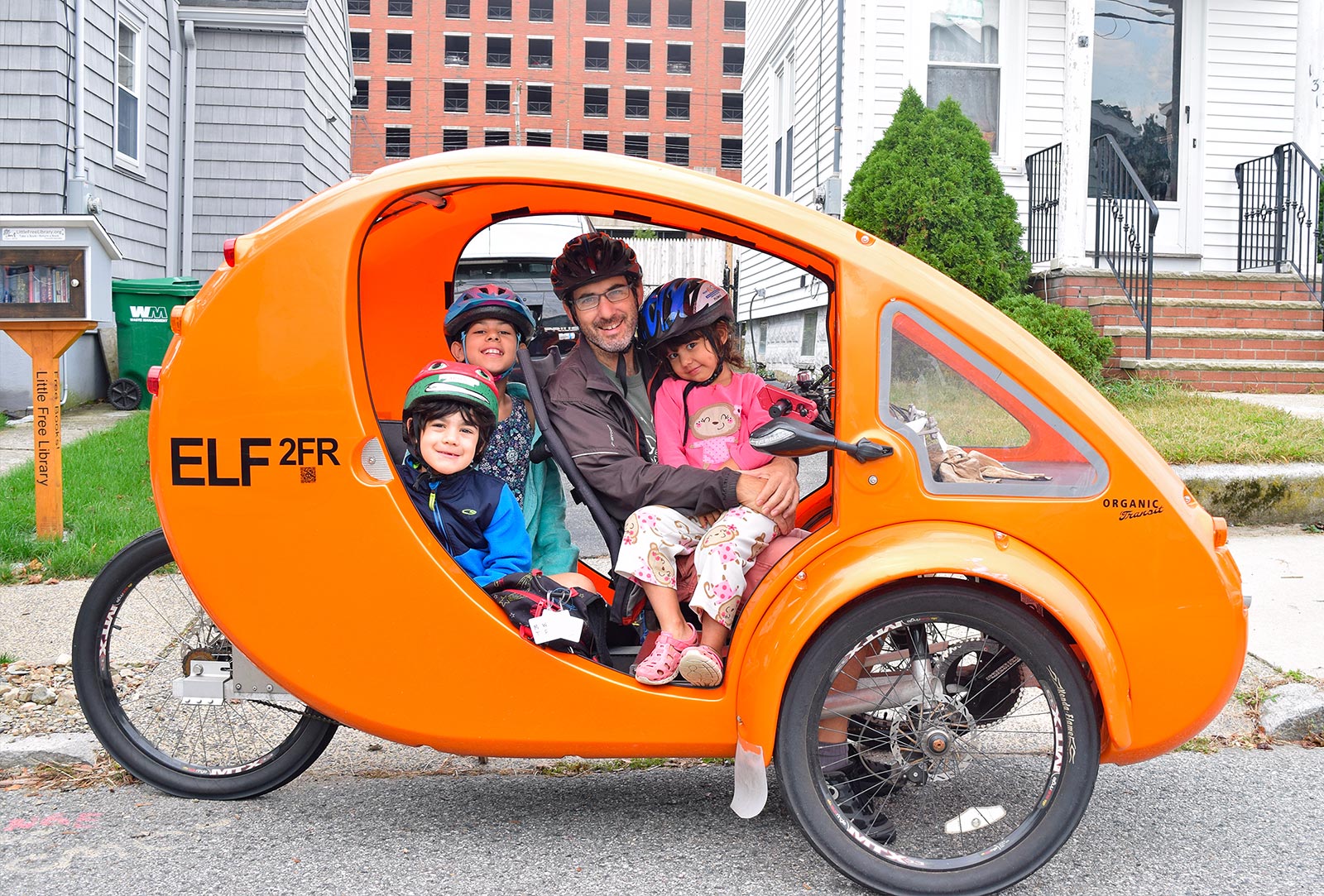 Figure 1. Software architect Scott Cytacki with his three kids in their solar-powered ELF.
Figure 1. Software architect Scott Cytacki with his three kids in their solar-powered ELF.
You may not know Scott Cytacki by name but if you’ve used STEM Resource Finder curriculum materials or an InquirySpace investigation or a Model My Watershed activity, or any number of our educational resources, you can appreciate Scott’s deep commitment to his work. Scott is our software architect who makes sure a user’s experience comes off without a hitch.
“When someone comes in with a problem they need solved, I find a way to fix it that would make their lives a lot better,” Scott explains. “What motivates me is helping people. Whether it’s a PI or an author or a user, I want to solve their problems and focus on long-term fixes.”
Scott landed at the Concord Consortium after a stint working on a Xerox PARC digital paper project and playing accordion for a folk rock band called Tamarisk. “I learned the accordion from my dad,” he says. “I started when I was in first grade and took lessons from the conductor of an accordion orchestra.”
After Xerox, he found himself living in Concord, Massachusetts, and discovered our website. By chance he’d also heard about us from a friend of a friend whose daughter was on our Board of Directors. So one day he walked into our offices unannounced and quickly advanced from organizing CDs to working on educational technology projects. That was eighteen years ago.
Now Scott solves complicated software design problems and implements new ideas like creating online professional development materials for teachers. He helped develop LARA (Lightweight Activity Runtime and Authoring), our main authoring and runtime environment, created with NSF support.
“I work with PIs and developers to figure out a way we can implement something easily so it fits into the patterns that we’ve already been using in the code,” he explains. “I like chaotic things that then result in structure.” (Which might be one of the reasons he likes the accordion.)
Scott is by and large a proponent of open-source software development, because he likes creating things that are available to everyone. “You know it would be great if we had more communities built around what we do.”
Although he works on a Mac now, he used to spend a significant amount of time maintaining a Linux laptop. He even created a patch into the Linux kernel to fix one of the serial drivers for the old Palm Pilots. However, he says, “Now I’m more pragmatic. I want what I create to be open source, but I’m ok with things that are not as long as it moves me in the right direction.”
Using a mixture of Ruby for server side work and JavaScript for browser applications, he primarily designs the solutions and creates the plan to accomplish a new project or solve a user problem. Especially in JavaScript, the environment changes often and he’s constantly figuring out the most maintainable way to develop. While he’s used a variety of open-source application development frameworks from SproutCore and Ember to Backbone, he’s settled on React. But he continues to search for the best tools.
“I think we’re a little bit different than some other companies that stay with the same technology stack [software products and programming languages] for years and years,” he says. “Because we’re starting new projects on a regular basis, we can afford to try out new stuff each time.”
Scott also has mentored student interns, including two in the Google Summer of Code (GSoC), which matches organizations who use open-source software development with students working remotely on short-term projects. He believes a successful intern combines two critical skills—technical ability and communication skills—but they don’t always come together. That’s why he’s always “trying to build up or grow an intern’s abilities.”
In his spare time, which isn’t much, since he’s married with three young children, he plays ultimate frisbee and maintains an ELF, a 3-wheeled, solar-powered enclosed bike (Figure 1). This bike/car is big enough to accommodate Scott and his two smallest children on the roadways. “The kids wave at people,” he laughs. “They’re used to everybody looking at us and saying, ‘What is that thing?’” He’s put a lot of time into keeping the vehicle running and thinking about how to make it better, much like what he does at work.
“Scott brings insight from his long history at the Concord Consortium that goes beyond the technical solution to what the solution means in the context of the classroom,” says Jen Goree, our Director of Impact.
Scott has worked for the Concord Consortium longer than many talented developers stay in one place. Why? “I feel like Concord is supportive of making the world a better place,” he explains. “It’s not all about making money or trying to get people to buy something. It’s about helping them learn things.”